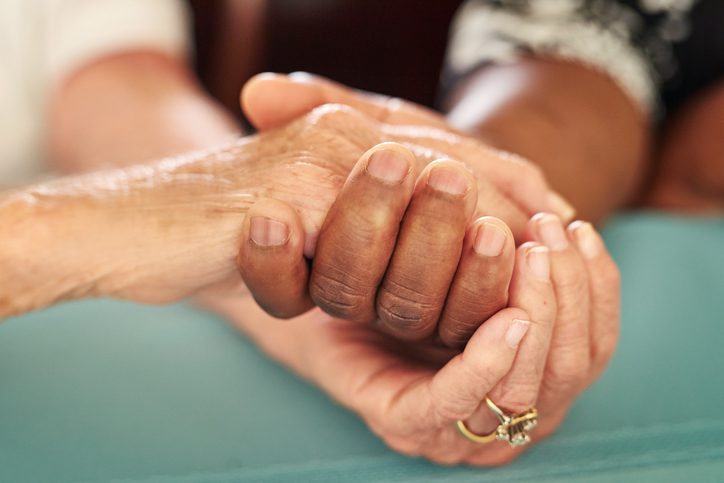
Barbara McKinney moved more than 350 miles—from St. Louis to Madison—to be with her son, Mike, after he received a terminal cancer diagnosis. Realizing how much Madison loved Mike, a TV news anchor known for his compassion and community service, she decided to stay after he died.
When UW-Madison introduced its Grief Support Specialist Certificate Program, she enrolled to learn more about using the grieving process for good. In addition to informing her work as a restorative justice instructor at Edgewood College, the program has helped her honor her son’s memory by guiding others through loss.
Finding meaning in the midst of suffering
The first program of its kind at a major American university, the Grief Support Specialist Certificate Program begins with four day-long classes, in which participants learn how to help others find meaning in the midst of suffering. A month later, participants reconvene to present a final paper or project. The program’s next in-person session begins October 5, and an online version begins July 14.
“The program has challenged me to step forward and try to make a difference,” McKinney says. “It has created a place inside of me that I always knew was there, but now I know it’s important to share [it].”
McKinney shares this special place with her students as they learn how to help people heal from the social and psychological wounds crimes create. She also uses it as an elected official on the Madison City Council, a job that puts her in contact with a diverse set of neighbors and the struggles they face.
The Grief Support Specialist Certificate Program is designed for social workers, psychologists, health care providers, educators, clergy, and other professionals who facilitate healing after traumatic events. Participants emerge better equipped to help others cope with the loss of loved ones, marriages, jobs, their health, their youth, their self-worth, and much more.
Grief therapy experts such as Douglas Smith, author of The Tao of Dying and The Complete Book of Counseling the Dying and the Grieving, teach each of the program’s classes, creating an engaging and supportive learning environment.
David Smith, who completed the program recently, says students learn from one another’s perspectives and experiences as well.
“You have people from various backgrounds dealing with various issues, and seeing that your issues are part of the whole spectrum [is a valuable part of the program],” he explains.
For more information about the Grief Support Specialist Certificate Program, see the video above or contact Nehls-Lowe at barbara.nehlslowe@wisc.edu or 608-890-4653.